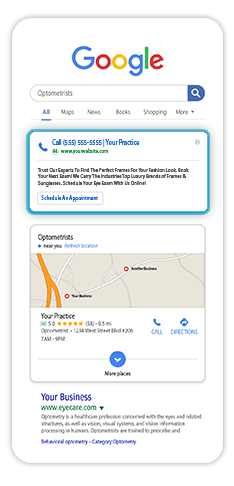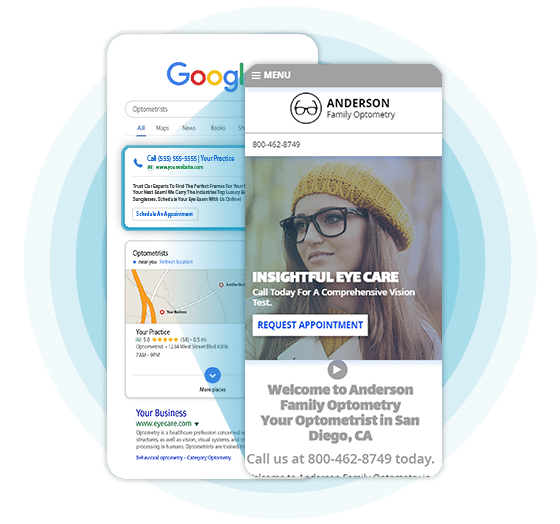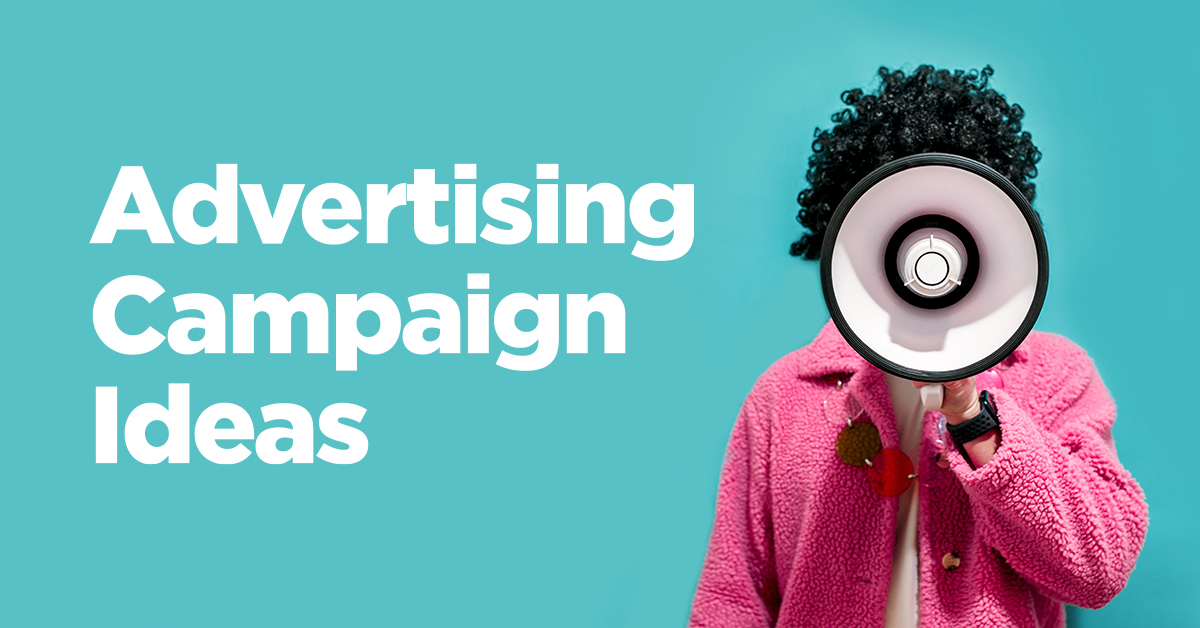How Does Pay-Per-Click Work?
SEO. PPC. So many acronyms… but what do they mean! Well, today we’re going to go over one of these mysterious marketing terms.
PPC stands for pay-per-click advertising, a highly effective form of advertising that enables you to target ideal clients when they’re searching for businesses like yours.
The most popular type of PPC advertising occurs on search engines such as Google, Youtube, and Bing, but can also occur on other types of sites, like Amazon or LinkedIn. Google reigns as the most popular platform for advertisers, covering about 37.2% of the digital advertising market.
We know you’ve probably seen PPC ads topping Google’s search engine results pages, but it’s just as likely that you hardly noticed they were ads! These advertisements are intended to provide users with the information, product, or service they are looking for in their search query and don’t appear much different than organic results.
If you’re unsure of how these ads appear on Google, do a quick, general search on the search engine. Try typing in “chiropractor in Boise” or “veterinarian near me” and notice results that feature a little green box labeled “Ad” by the URL.
Now that you have an idea about what PPC ads look like on search engine results pages, let’s dive a little deeper into this topic. Next up, we answer your most commonly asked questions about pay-per-click advertising.
What is PPC?
 As we mentioned earlier, PPC is shorthand for pay-per-click advertising. We will primarily be discussing paid search ads and paid social media ads, though there are also other forms of PPC, like retargeting and display ads.
As we mentioned earlier, PPC is shorthand for pay-per-click advertising. We will primarily be discussing paid search ads and paid social media ads, though there are also other forms of PPC, like retargeting and display ads.
Paid search ads refer to our above example. These ads appear at the top of SERPs (search engine results pages) of search engines. Paid ads on social media usually appear as you scroll through your feed rather than at the top of your homepage.

Each time one of your ads are clicked, you pay a fee to the advertising host. Hence the name, pay-per-click advertising.
How does PPC work?
Okay, buckle in, this one can get a little complicated.
PPC enables businesses to bid on advertising placements through a host site, like Google or Facebook. These ads populate when a user enters a relevant keyword into the search query.
However, just because you have bid on a particular keyword doesn’t mean that your ad will populate every time that phrase is entered into the search bar. And you can’t necessarily just pay more for that top spot (though pricing is a big factor).
When you bid on a keyword, search engines will add your site to a pool of advertisements to pull from when applicable searches are made.
Whether or not your site populates for relevant keywords depends on a variety of conditions that are decided by both the host and your set parameters.
For Google Ads in particular, the platform assigns each advertiser an Ad Rank through a new algorithm. This number is determined by the CPC bid (the amount an advertiser is willing to spend on an ad), the Quality Score, and ad extensions.
The Quality Score is comprised of some of the same elements that are used to determine your organic search engine ranking. This includes the click-through-rate of your ad, it’s relevance to the user, and the quality of the landing page.
Also, remember, your ad won’t come up on every single search for that keyword. If you set your location to only show your ads to people within a 35-mile radius from your office, then those are the people that will see your ad when they search for applicable keywords.
How much does PPC cost?
Remember that CPC bid we mentioned? Well, that isn’t necessarily the amount you will be paying for each click. The CPC bid is the MAXIMUM you’re willing to pay for that click, not the amount you will pay.

How much you pay is completely dependent on the competitiveness of the keyword or phrase you are bidding on. Typically, that CPC bid is between $1 and $3, so imagine you will be paying either within this median or less.
Also, this is only charged to you when someone clicks on your ad. This is why you want to be very strategic when creating the specifications on your PPC ads so that they only target your ideal audience.
Facebook ads cost an average of $0.27 for CPC (cost-per-click) and $7.19 for CPM (cost-per-thousand impressions). You may pay less than average or significantly more. Paid social ads are very similar to search ads in that the real cost breakdown is dependent on your strategy and goal.
Which platform should I use for PPC ads?
Every business is different. Some companies benefit from retargeting ads while others see a great ROI from advertising on Instagram.
For your industry, we highly suggest Google Ads. Let’s go over the top four reasons why we think this method is best for your practice.
- First of all, we know we don’t have to tell you that Google is the most popular search engine in the world. I mean, who doesn’t use Google?! Google sees 160 billion searches a month.
- Google Ads offer a superior return-on-investment, or ROI.
- Local searches tend to be made on Google, especially those completed on a mobile device. In fact, 46% of local searches are made on Google.
- This platform allows you to set preferences so that you are reaching a limited demographic, aka your ideal clients.

How do I use PPC?
Pay-per-click advertising is an animal all its own. It’s no wonder companies will hire specialists, or a team of specialist, just to handle its paid advertising endeavors.
We recommend that you start off your PPC campaigns slowly. You don’t want to put too much money into one campaign just to find out you were bidding on the wrong keywords!
On that note, we also encourage you to do your research, like you are right now! Use keyword research programs, such as Moz or SEM Rush, to determine which phrases would benefit your PPC ads most. To learn more about keyword research, check out this article.
If you need hands-on assistance and a team of professionals that understand your business to help you implement your PPC plan, give us a call, we know a guy (or girl) or two.
Looking to expand your paid advertising knowledge further?
Check out these helpful resources:
5 Ways to Target Your Ideal Clients with Local Marketing
The Difference Between Paid and Organic Web Marketing
Creating an Effective PPC Landing Page



